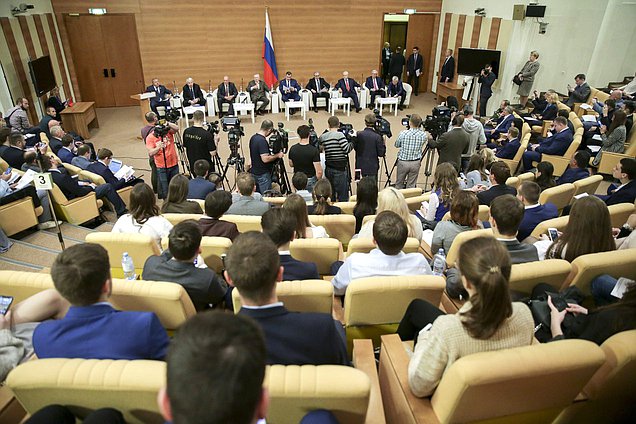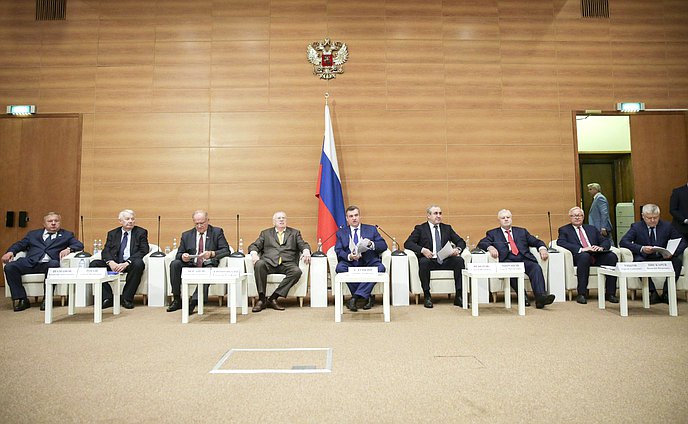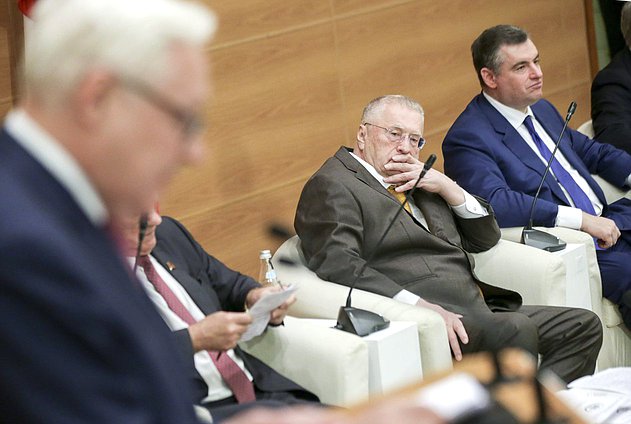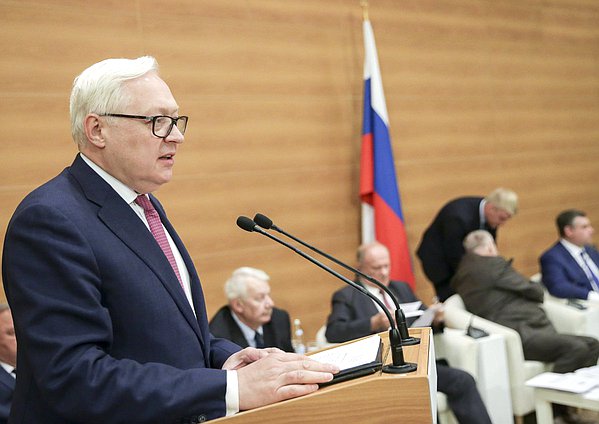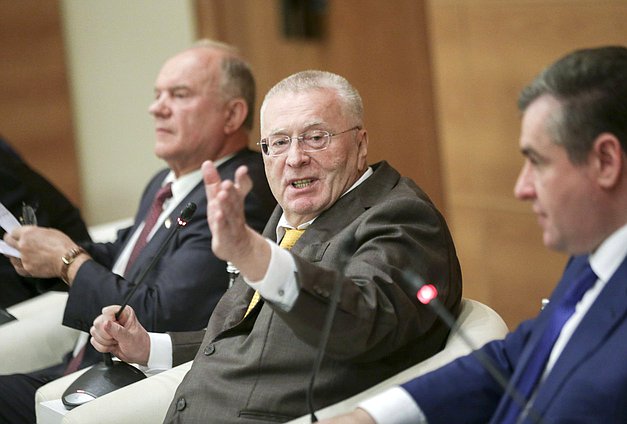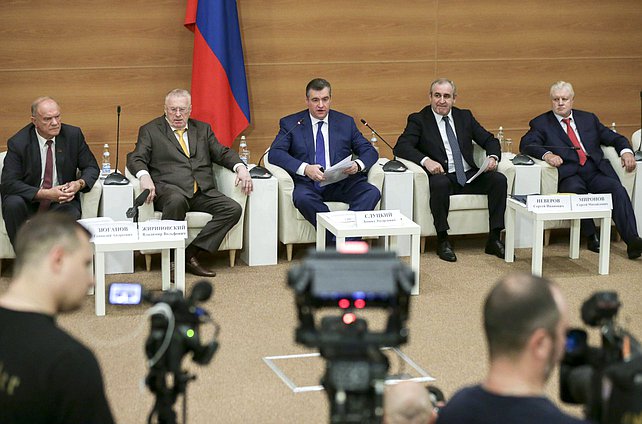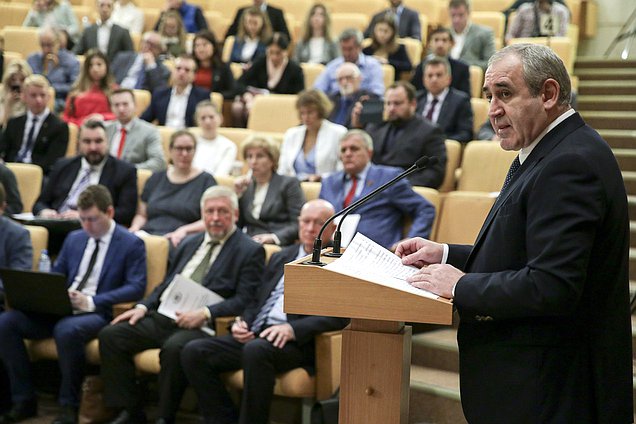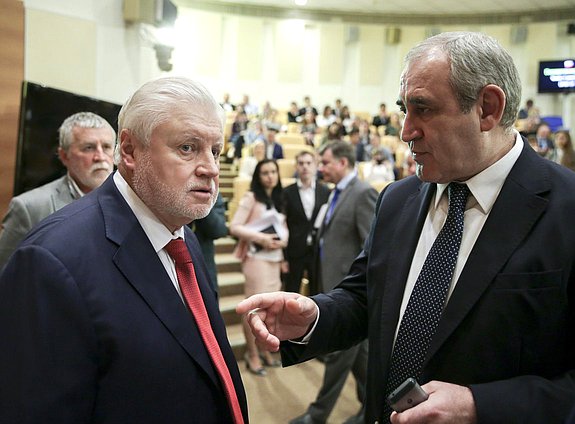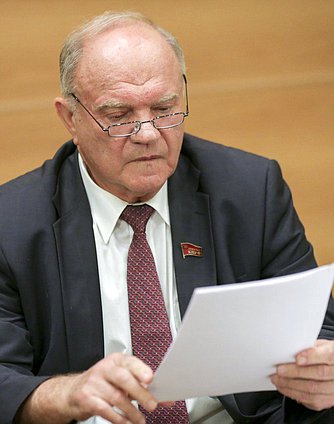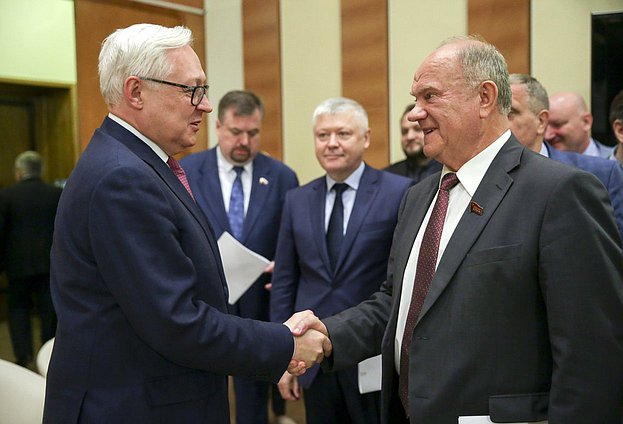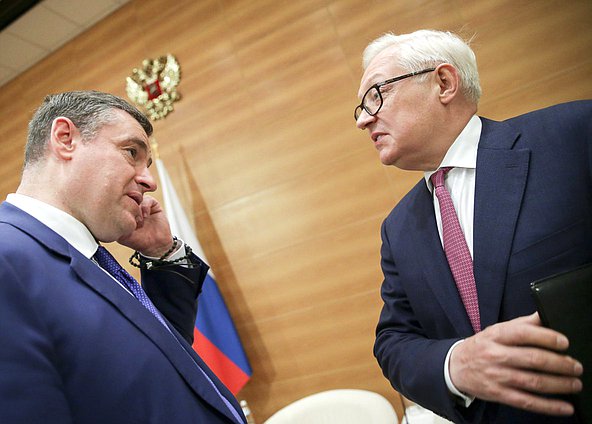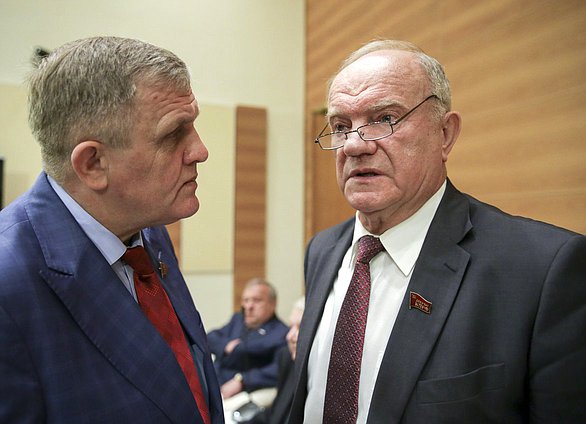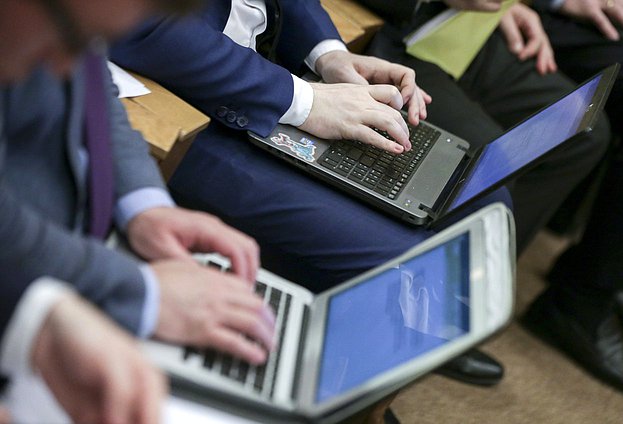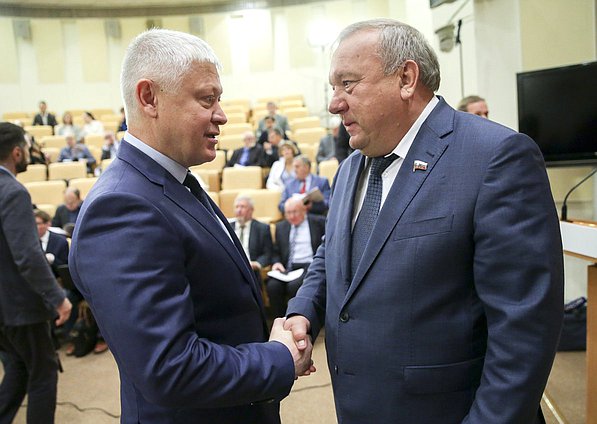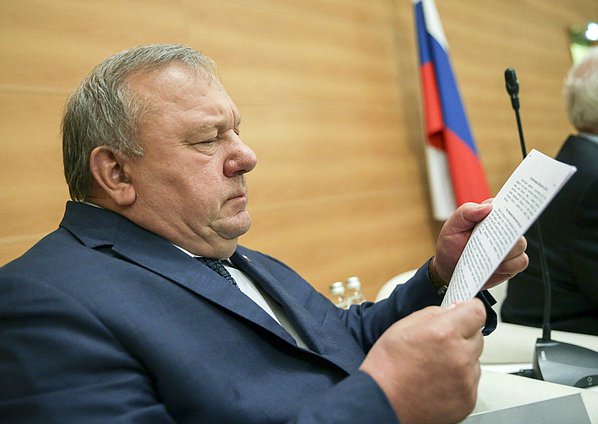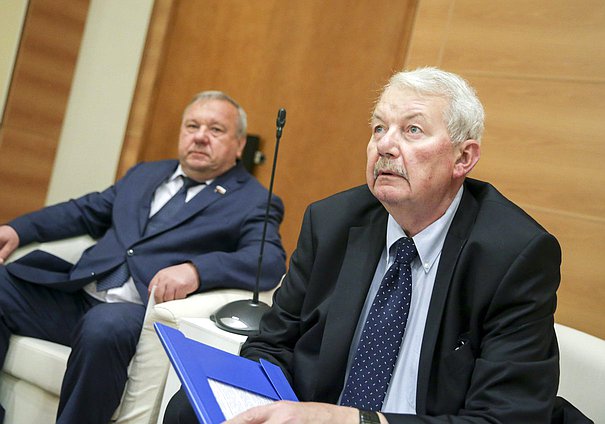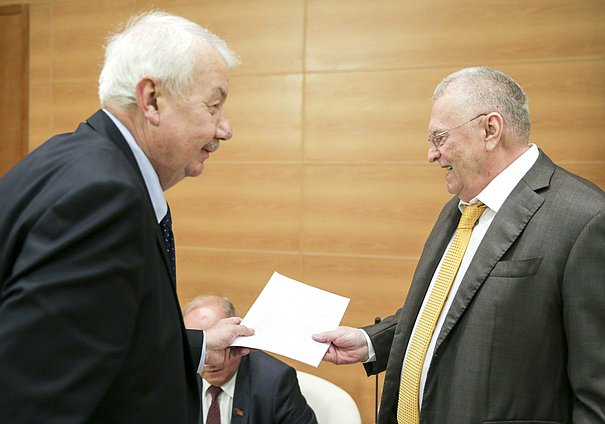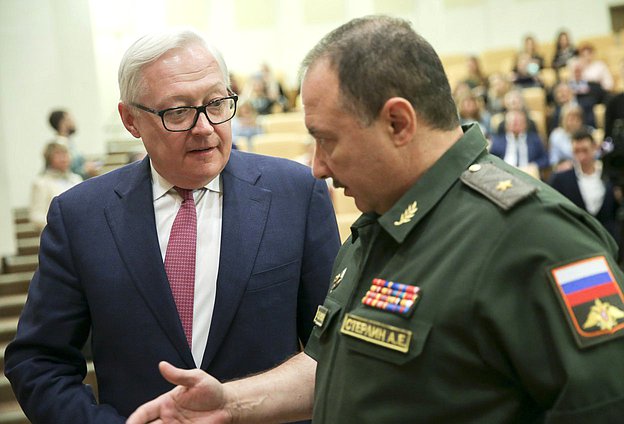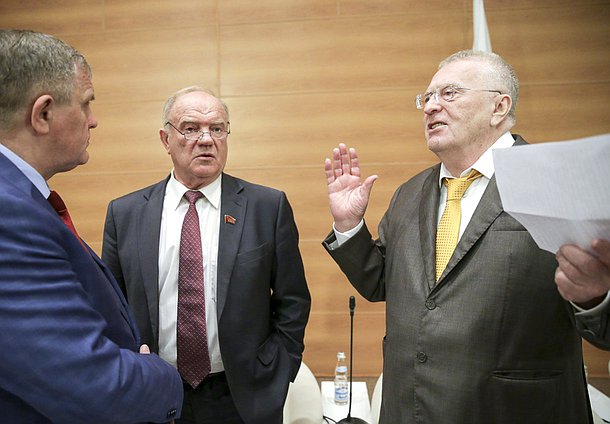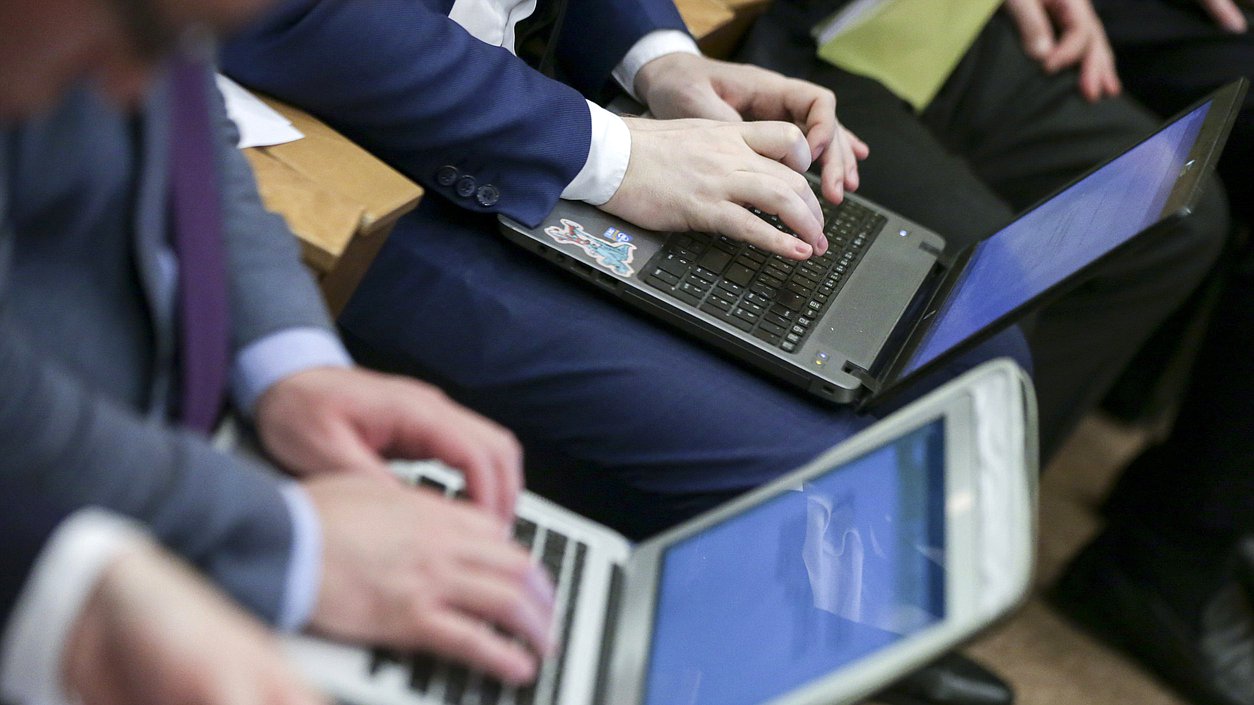
The parliamentary hearings “Ensuring strategic stability in the context of a changing global security architecture: a parliamentary dimension” were held in the State Duma on July 11. The hearings were organized by the Committee on International Affairs.
To prevent new war
The Chairman of the Committee, Leonid Slutskiy

Leonid Eduardovich
, opening the event, noted that the United States of America is currently playing the major destructive role in global
security. At the same time, he stressed that the main thing is the reduction of the military threat.
“We all understand how dangerous the Third World War could be, and now the main thing is prevention the realization of its threat, as well as to address issues of strategic stability, which has not yet increased. The US now plays a major destructive role in international security field,” said the parliamentarian.
Deputy Minister of Foreign Affairs Sergey Ryabkov, in his turn, called on the American side for direct dialogue with Russia to understand better mutual intentions.
“High-ranking American military representatives talk about some hypothetical US response to a possible limited nuclear attack by Russia, including on American territory. We can only guess why the US military representatives voiced such absolutely unrealistic scenarios that have nothing to do with the military doctrine of the Russian Federation,” he said.
“It is necessary that our experts, first of all military, to be engaged in the discussion of doctrinal topics. It is necessary to understand the real views and intentions of each of the parties,” stressed Sergey Ryabkov.
Development of parliamentary diplomacy
The leaders of the State Duma factions and the chairmen of the relevant committees of the State Duma also addressed the participants of the hearings.
The Deputy Chairman of the State Duma, the head of the United Russia faction,
Sergei Neverov

Sergey Ivanovich
, stressed in his speech that more active involvement of the parliamentary
diplomacy mechanisms would help to address many international security issues.
“The current system of strategic stability and the system of non-proliferation of nuclear weapons are under threat,” he said, recalling that the Intermediate-Range Nuclear Forces Treaty (INF Treaty) would be suspended on August 2 at the initiative of the United States, at the same time there was a threat of non-renewal of the Strategic Arms Reduction Treaty between the United States and Russia, as the New START expires in February 2021.
According to the Deputy Chairman of the State Duma, such circumstances inevitably raise concerns about a new round of the arms race, which will involve not only Russia and the United States, but also other countries.
“But Russia, as our President has repeatedly stressed this, does not intend to get involved in it, while our armed forces are ready to repel aggression in such a situation and to protect our citizens,” said Sergei Neverov.
In connection with the above, a huge role is played by parliamentary diplomacy, believes Sergei Neverov. “We need to enhance international cooperation with our colleagues, explain to our partners the position of our country at all international platforms. The extension of the New START Treaty and the measures of transparency and predictability, contained in the Treaty, are the guarantee of stability of the entire global security architecture,” he stressed.
The leader of the LDPR faction Vladimir Zhirinovskii

Vladimir Volfovich
paid special attention
to the situation in Georgia in his speech.
He noted, in particular, that “the new authorities of Georgia would actively cooperate with the United States and can provide them the country's military airfields for future attack.” According to Vladimir Zhirinovskii, the situation could have “fatal” consequences for this country.
The head of the CPRF faction Gennady Zyuganov

Gennady Andreyevich
drew the attention of hearings
participants to the danger of the deployment of NATO forces in Ukraine and the Baltic states.
“If NATO stationed near Kharkov, and very influential forces in Ukraine want this, it would take 3–4 minutes for their missiles to reach our control centers in Moscow. Therefore, we should officially declare to both Europe and the US that we will not allow to deploy nuclear-missile forces either in the Baltic States or in Ukraine. This is an area of our vital interests, and we will protect it by all available means,” he said.
The leader of the Just Russia faction Sergei Mironov

Sergey Mikhailovich
also emphasized the special role of parliamentary diplomacy in strengthening security to deal with
existing threats.
“Russia is considered a leader in the promotion of parliamentary diplomacy. Numerous sanctions against just the Russian parliamentarians prove that. Because, paradoxically, they are afraid. They are afraid of a normal dialogue, they are afraid of real documents and facts, and not fabrications, sometimes simply taken from the Internet,” he said.
According to Sergei Mironov, “parliamentary diplomacy should not be conducted in the categories of “ally-enemy”.
More flexible forms of cooperation and more diverse partnership are needed for various aspects of security policy in different formats and involvement of different members.
“Informational transparency and readiness for dialogue on all issues, including those that cannot be resolved rapidly, is important,” the head of the faction believes.
Exchange of legislative experience
Chairman of the Committee on Security and Corruption Control Vasilii
Piskarev

Vasily Ivanovich
also drew attention to the need to develop inter-parliamentary cooperation
and the exchange of legislative experience to strengthen international
security, including in the cyber space.
“We believe that an important aspect of strategic security is ensuring cybersecurity and countering the use of the Internet in criminal activities. All countries without exception are concerned of it,” he said.
“In their turn, foreign partners are interested in learning from experience of legislative regulation in Russia of combating telephone terrorism, using the Internet to involve minors in criminal activities (so-called “death groups”, “Columbine communities”) and drug trafficking on the Internet,” added Vasilii Piskarev .
The Chairman of the Committee on Security and Corruption Control also called for greater control over the implementation of the commitments adopted by parliamentarians.
“For example, some partners at personal meetings noted concerns about the level of implementation of agreements in the field of anti-drug cooperation and expressed their wish to strengthen work in this direction. We also have to take into account and should stimulate and give an additional impetus to the intensification of work at the level of specialized agencies,” said Vasilii Piskarev.
